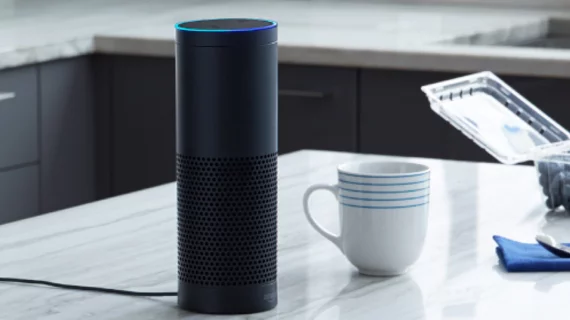Cedars-Sinai uses Alexa-powered platform to create smart hospital room
In a quest to make hospital rooms more intelligent and convenient, Cedars-Sinai Medical Center in Los Angeles is piloting Aiva—an Alexa-powered platform that allows patients to interact hands-free with hospital staff and control their in-room entertainment.
"Smart rooms are all about improving satisfaction for both patients and nurses," Sumeet Bhatia, founder and CEO of Aiva, said in a statement. "Cedars-Sinai and Aiva are giving patients more entertainment options, more control over their environment and closer communication with their care team."
The pilot program is currently underway in more than 100 patient rooms at Cedars-Sinai. Through the program, patient rooms are equipped with Amazon Echos—a device that uses conversational AI to interact with users.
In a recent Forbes article, Nuance CEO Mark Benjamin suggested conversational AI could help cure physician burnout.
The Aiva platform allows patients to tell the device what they need through verbal commands, and the request is then sent to the appropriate caregiver. If a patient’s request isn’t answered in a timely manner, the platform sends it up the chain of command.
"Whereas previously nurses were frequently asked to help with the in-room television, Alexa does that job for us, allowing nurses to focus on providing the highest level of patient care," Golda Morales, assistant nurse manager of general surgery at Cedars-Sinai, said in a statement.
The most common patient requests are to play music or provide weather and sports information, according to a press release. The device is believed to be the world’s first patient-centered voice assistant platform for hospitals.
"Patients young and old are now used to voice-activated devices in their homes. Since it's familiar to them, it helps enhance their hospital experience," Peachy Hain, executive director of medical and surgical services at Cedars-Sinai, said in a statement.

